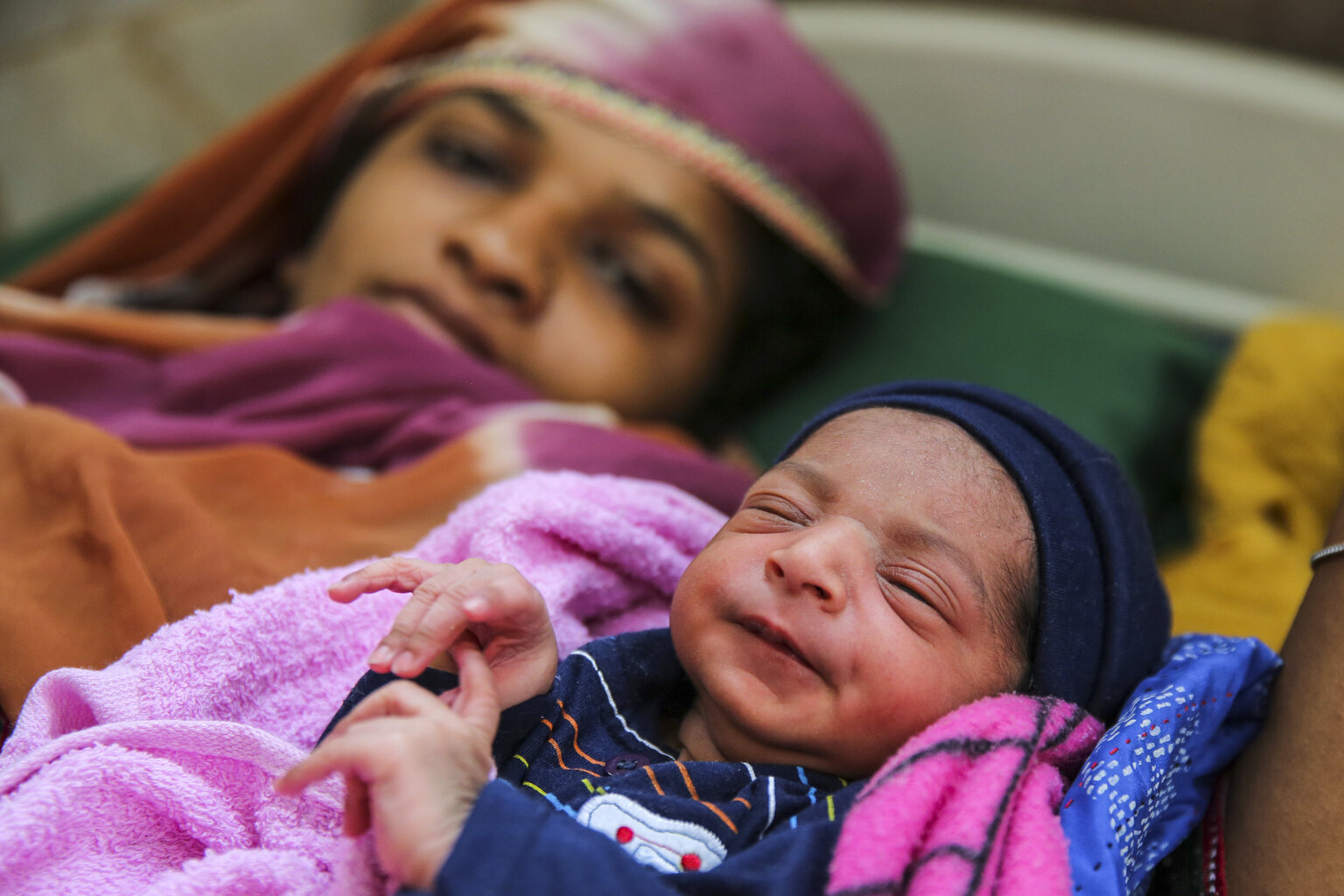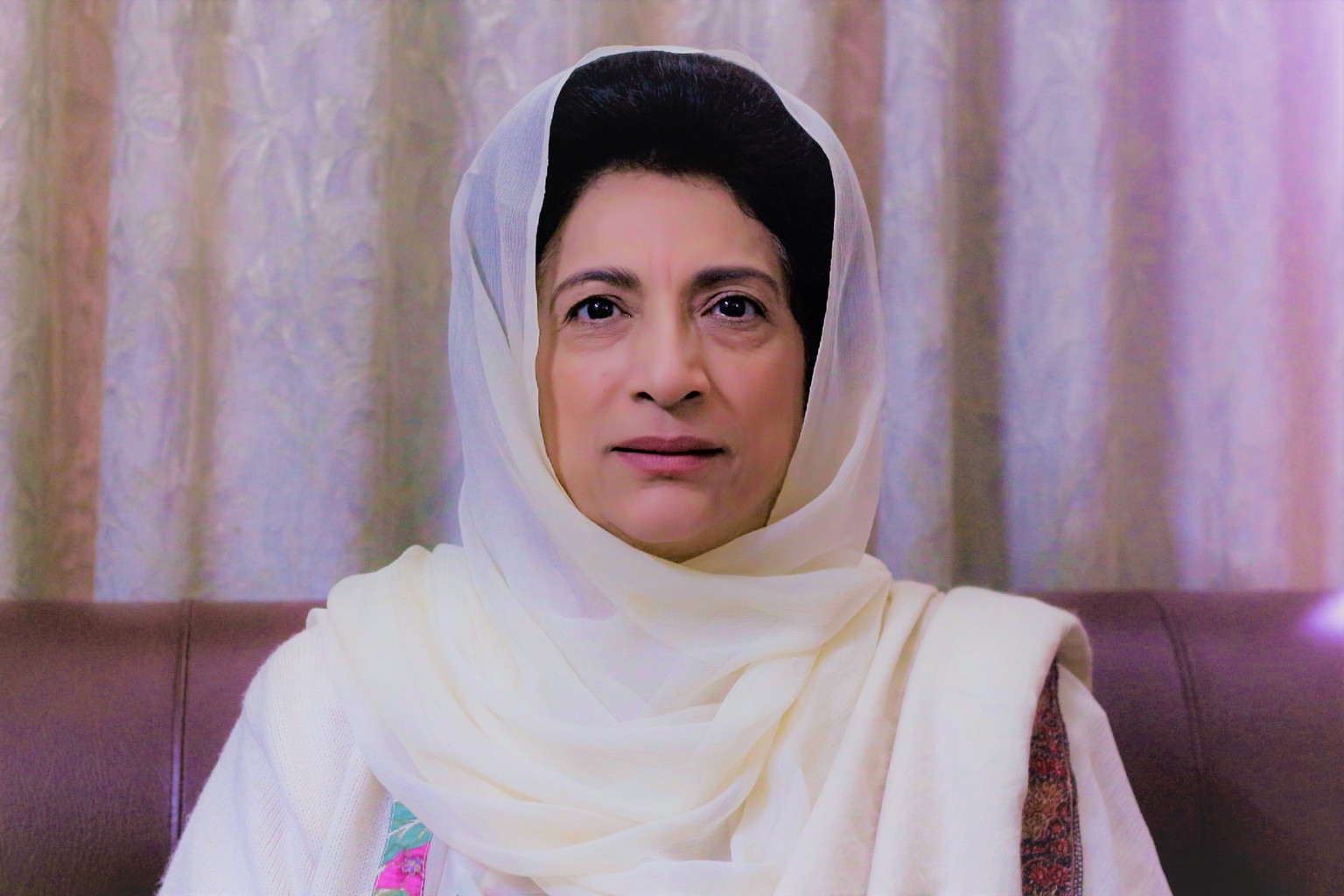News
Canada announces historic investment in the global fight against malnutrition
February 6, 2025
WP_Term Object
(
[term_id] => 136
[name] => Blog Posts
[slug] => all-blog-posts
[term_group] => 0
[term_taxonomy_id] => 136
[taxonomy] => news-category
[description] => See what’s top of mind for our technical experts as they share the latest on cutting-edge nutrition research, policy updates, and implementation guidance.
[parent] => 2025
[count] => 137
[filter] => raw
)
Empowering breastfeeding: Pakistan’s dedication shines through new legislation
On the cusp of World Breastfeeding Week, Pakistan passed landmark legislation that underscores the country’s commitment to enabling breastfeeding. With less than half of the country’s children receiving adequate breastfeeding as per the 2018 National Nutrition Survey, we must continue to drive forward actions that make breastfeeding possible.
Posted on July 31, 2023
Breastfeeding plays a vital role in the health, growth and future development of infants. From the very first hour of life, breast milk emerges as a nutritional powerhouse, bestowing babies with essential nutrients and natural immunity that offers robust protection against a myriad of illnesses. Exclusive breastfeeding, where babies receive only breast milk without any other foods or liquids, is associated with an increased resistance to disease and better overall survival and health outcomes for the infant.
In addition to its positive impact on infants, breastfeeding also has tremendous benefits for women, contributing to their well-being and long-term health. The World Health Organization (WHO) reports that longer durations of breastfeeding can significantly reduce the risk of ovarian and breast cancer, the two leading causes of mortality among women worldwide.
WHO and UNICEF recommend initiating breastfeeding within one hour of birth and continuing exclusively for the first six months. Beyond this, complementary feeding (breastfeeding along with the ) is recommended until at least two years of age. These guidelines emphasize the importance of breastfeeding during the early stages of life and throughout infancy, while reinforcing the necessity of not only promoting breastfeeding practices, but also providing continuous support to mothers throughout this crucial period.

The Government of Pakistan has reaffirmed their unwavering commitment to breastfeeding by recently passing two significant laws in advance of World Breastfeeding Week (WBW), observed globally from August 1 to 7 each year. These progressive laws echo this year’s theme: “Enabling breastfeeding: Making a difference for working parents,” which reinforces the importance of supporting breastfeeding in the workplace.
Recognizing the significance of adequate maternity and paternity leave policies, the government took a significant stride with the enactment of the Maternity and Paternity Leave Act on June 20, 2023. This landmark legislation grants maternity and paternity leave to employees in public and private establishments under administrative control of the federal government. Under this new law, mothers are now allowed to take up to six months of paid leave following the birth of their first child, followed by four and three months for their second and third child respectively. Equally significant is the provision for paternity leave that enables fathers to take three, one-month leaves throughout their employment tenure. This landmark legislation is a step in the right direction to helping create a supportive environment for breastfeeding.
The Sindh government has also played a pivotal role in advancing breastfeeding initiatives by establishing the Sindh Protection and Promotion of Breastfeeding and Young Child Nutrition Act. This comprehensive law states it is strictly prohibited for any representative to solicit or prompt health care facilities or workers into endorsing specific products for infants and young children, with the aim of safeguarding against any potential undue influence or pressure on health care providers when they make decisions about prescribing products for the well-being of infants up to 36 months of age. By focusing on promoting, protecting and supporting breastfeeding, as well as encouraging healthy diets to prevent obesity and non-communicable diseases, this act showcases the government’s dedication to securing the health and well-being of its youngest citizens.
Working closely with federal and provincial governments, Nutrition International’s team in Pakistan collaborated with partner organizations and members of the SUN Civil Alliance of Pakistan to draft the legislation. To ensure long-term success, we conducted sensitization sessions for members of parliament at the national and provincial levels, to emphasize the importance of safeguarding and investing in breastfeeding. Additionally, through our partnership with the Ministry of National Health Services, Regulations and Coordination, we worked alongside the Parliamentary SDGs Secretariat to garner support for the new laws.

“Nutrition International remains steadfast in our commitment to working with the government at various levels to establish similar breastfeeding-related legislation in other federating units within Pakistan
—Dr. Shabina Raza, Country Director for Pakistan, Nutrition International
For years, Nutrition International has been a champion for breastfeeding promotion in Pakistan, working to raise public awareness about its significance. Our team takes great pride in the supporting role we played in bringing this legislation to fruition. Through dedicated advocacy efforts, we effectively mobilized various civil society organizations to advocate for the in alignment with WHO . As members of the Global Breastfeeding Collective, we are also committed to upholding the principles of the International Code of Marketing of Breast-Milk Substitutes in all the work that we do. Moving forward, Nutrition International remains steadfast in our commitment to working with the government at various levels to establish similar breastfeeding-related legislation in other federating units within Pakistan.
These recent laws underscore the ongoing progress in Pakistan to promote and protect breastfeeding, but there is still work to be done. The latest National Nutrition Survey in 2018, revealed that 48.4% of the country’s children do not receive adequate breastfeeding, highlighting a critical concern that requires attention. To address this, the Protection of Breastfeeding and Young Child Nutrition Ordinance 2002 was enacted to enforce the International Code of Marketing of Breast-milk Substitutes. Similarly, following the 18th Constitutional Amendment, all provinces have taken action by imposing Protection and Promotion of Breastfeeding and Young Child Nutrition laws that act as safeguards, strictly prohibiting the promotion of any kind of milk product as a total or partial replacement for mother’s milk.
Despite these efforts, implementation challenges and inadequate enforcement arrangements have hindered the effective application of these laws. To overcome these obstacles, it is essential to activate infant feeding boards and establish robust monitoring, compliance and reporting mechanisms.
The commendable efforts made by the Government of Pakistan and its provinces emphasizes the nation’s collective commitment to prioritize and implement comprehensive breastfeeding initiatives. The passing of these laws paves the way for further investment in their effective implementation by:
These strategic investments have the potential to yield substantial returns, both in terms of health, and economic outcomes, as well as overall societal well-being. While this legislation represents a key step in the right direction, Pakistan’s work is not done. As the nation continues its journey towards achieving breastfeeding targets, the positive impact on the health, wellbeing and future generations to come will shape a legacy of lasting benefits.